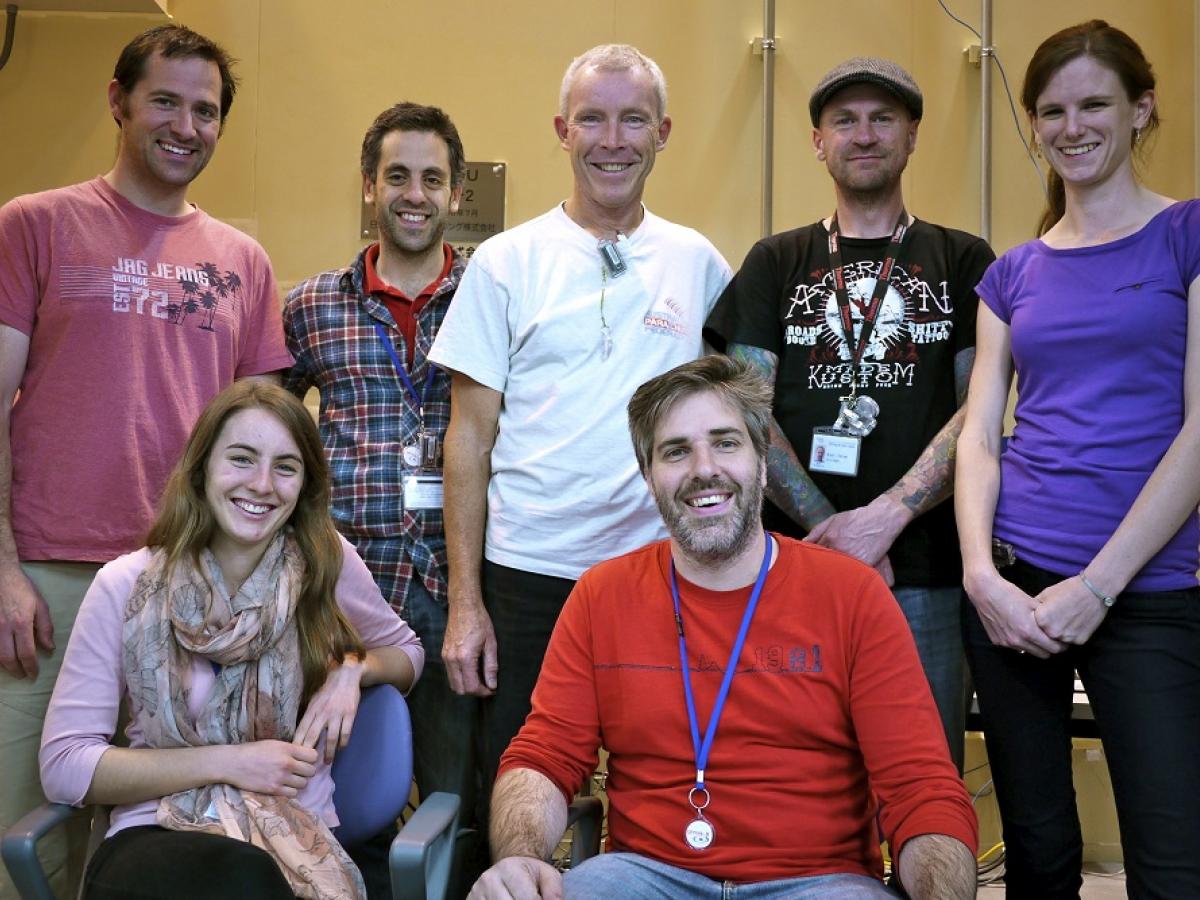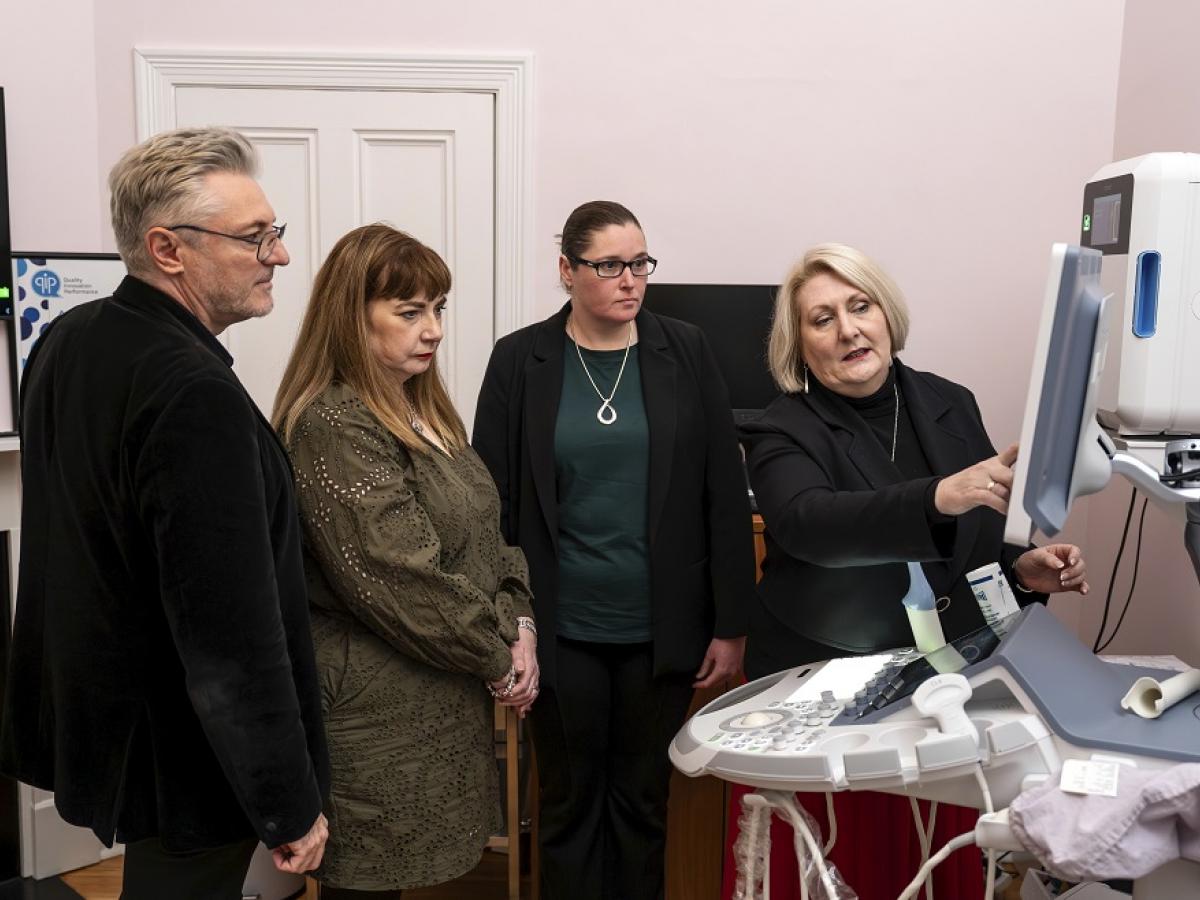Prestigious awards recognise medical technological innovation

The Cystic Fibrosis Lung Health Imaging project, led by the University of Adelaide’s Associate Professor David Parsons from Adelaide Medical School.
Cutting-edge medical research carried out at the University of Adelaide has been awarded prizes for excellence in the prestigious 2023 Australian Museum Eureka Prizes. Two projects won awards for innovative medical imaging techniques to help treat children with cystic fibrosis and for the improved diagnosis of endometriosis using artificial intelligence.
“I congratulate our dedicated University of Adelaide researchers who are being recognised for their outstanding work in delivering technological advancements in the medical sciences,” said Professor Anton Middelberg, Deputy Vice-Chancellor and Vice-President (Research) at the University of Adelaide.
“These projects focus on the development of cutting-edge medical techniques designed to deliver real-world positive outcomes to people in Australia and across the world. These achievements showcase the remarkable research being undertaken every day at the University of Adelaide.”
The winning University of Adelaide projects were awarded within the Research and Innovation Category.
The Cystic Fibrosis Lung Health Imaging project from the University of Adelaide; Women's and Children's Hospital, Adelaide; 4D Medical Pty Ltd; and Monash University was awarded the Aspire Scholarship Eureka Prize for Excellence in Interdisciplinary Scientific Research.
The project is led by the University of Adelaide’s Associate Professor David Parsons from Adelaide Medical School and Robinson Research Institute.
To treat children with cystic fibrosis (CF), it is critical to know the location and extent of abnormal airflow. Combining expertise across physics, medicine and engineering, this interdisciplinary team developed a novel medical imaging method called X-ray Velocimetry (XV). With further development it promises to help detect, treat and monitor CF and other lung diseases.
“We are so pleased that the interdisciplinary research work undertaken by our team across engineering, physics, X-ray imaging, image analysis, lung medicine, and cystic fibrosis, has been recognised by the Eureka judges.” said Associate Professor Parsons.
“XV lung imaging holds real potential for detecting the earliest beginnings of lung disease in very young children with CF, something that has not been possible with the existing lung health tests. Since XV can show exactly where in the lung disease is beginning, it means prevention of disease can become a reality, by precisely targeting treatment to just those areas affected, before disease can establish,” said Associate Professor Martin Donnelley, who also works on the project.
Both experts are so committed to the successful outcomes of this new technology that they have personally invested in 4DMedical, the company that has translated XV imaging into a clinical tool.
“These projects focus on the development of cutting-edge medical techniques designed to deliver real-world positive outcomes to people in Australia and across the world. These achievements showcase the remarkable research being undertaken every day at the University of Adelaide.”Professor Anton Middelberg, Deputy Vice-Chancellor and Vice-President (Research) at the University of Adelaide

The IMAGENDO team from the University of Adelaide and OMNI Ultrasound and Gynaecological Care, led by Professor Louise Hull from the University's Robinson Research Institute.
The IMAGENDO team from the University of Adelaide and OMNI Ultrasound and Gynaecological Care, led by Professor Louise Hull from the Robinson Research Institute, was awarded the ANSTO Eureka Prize for Innovative Use of Technology.
Endometriosis affects one in nine Australian women and people assigned female at birth, who experience significant pain and economic impacts during the six or more years it takes to receive a diagnosis.
IMAGENDO is building innovative artificial intelligence capabilities to pair with MRI and ultrasound technology that, with further development, will provide rapid, non-invasive diagnosis.
“I wish to thank the Australian Museum and Australian Nuclear Science and Technology Organisation (ANSTO) for awarding our project this Eureka Prize,” said Professor Hull from the University’s Robinson Research Institute.
“This acknowledgement that one in ten women, and people assigned female at birth, greatly require a non-surgical test for diagnosing endometriosis supports the entire endometriosis community. The scientific novelty in using AI in more than one imaging modality has also now been recognised.
“I work with an amazing, creative, enthusiastic, young team from across Australia, the UK and North America who are dedicated to improving the diagnosis of endometriosis. With the support of the Robinson Research Institute and the University of Adelaide, our team is being seen nationally and internationally as contributing to the rapidly changing way we are diagnosing and treating endometriosis.”
The Australian Museum Eureka Prizes are the country’s most comprehensive national science awards, honouring excellence across the areas of research and innovation, leadership, science engagement, and school science.
The Eureka Prizes are presented annually in partnership with some of the nation's leading scientific institutions, government organisations, universities and corporations. They aim to raise the profile of science and science engagement in the community by celebrating outstanding achievement.
The 2023 Australian Museum Eureka Prize winners were announced at a ceremony at the Australian Museum.
Media contacts
Poppy Nwosu, Media Officer, the University of Adelaide. Phone: 08 8313 2532. Email: poppy.nwosu@adelaide.edu.au
